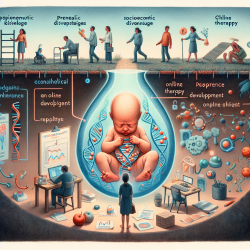The intricate landscape of U.S. health care fraud laws often presents significant hurdles for health care organizations aiming to implement programs that address food and nutrition security. These programs are crucial in improving health outcomes, particularly for vulnerable populations. The research article "Is that Hospital Food Pantry an Illegal Patient Inducement? Analysis of Health Care Fraud Laws as Barriers to Food and Nutrition Security Interventions" sheds light on these challenges and offers pathways for practitioners to navigate these legal complexities.
The Challenge of Legal Compliance
Health care fraud laws, such as the Anti-Kickback Statute (AKS) and the Civil Monetary Penalties Law (CMPL), are designed to prevent misuse of federal health care program resources. However, they can also inadvertently hinder beneficial programs that address social determinants of health, including food and nutrition security. The fear of non-compliance can deter organizations from pursuing innovative programming, further entrenching inequities in access to essential services.
Navigating the Legal Landscape
The research highlights several strategies that health care practitioners can employ to overcome these barriers:
- Utilize Safe Harbors and Exceptions: Certain safe harbors and exceptions exist within AKS and CMPL that allow for specific types of support. For example, the Patient Engagement and Support Safe Harbor permits in-kind items like food vouchers under certain conditions.
- Leverage CMS-Sponsored Models: Participating in models tested by the CMS Innovation Center can provide flexibility in offering free or discounted items to patients.
- Pursue Insurance Coverage: Efforts to include food and nutrition supports as covered insurance benefits can eliminate concerns about inducement violations.
- Strategic Program Design: Designing programs that align with federal guidelines can mitigate risks. This includes ensuring that assistance is not tied to business generation and is modest in nature.
The Role of Practitioners
Practitioners play a critical role in advocating for policy reforms that integrate food and nutrition security into health care systems. By engaging with regulatory bodies and leveraging available tools such as advisory opinions and policy bulletins, practitioners can help shape a legal environment conducive to innovative programming.
The integration of food and nutrition interventions into clinical care not only improves individual patient outcomes but also enhances overall public health by addressing root causes of chronic diseases. Practitioners are encouraged to explore further research and collaborate with policymakers to advance these initiatives.










